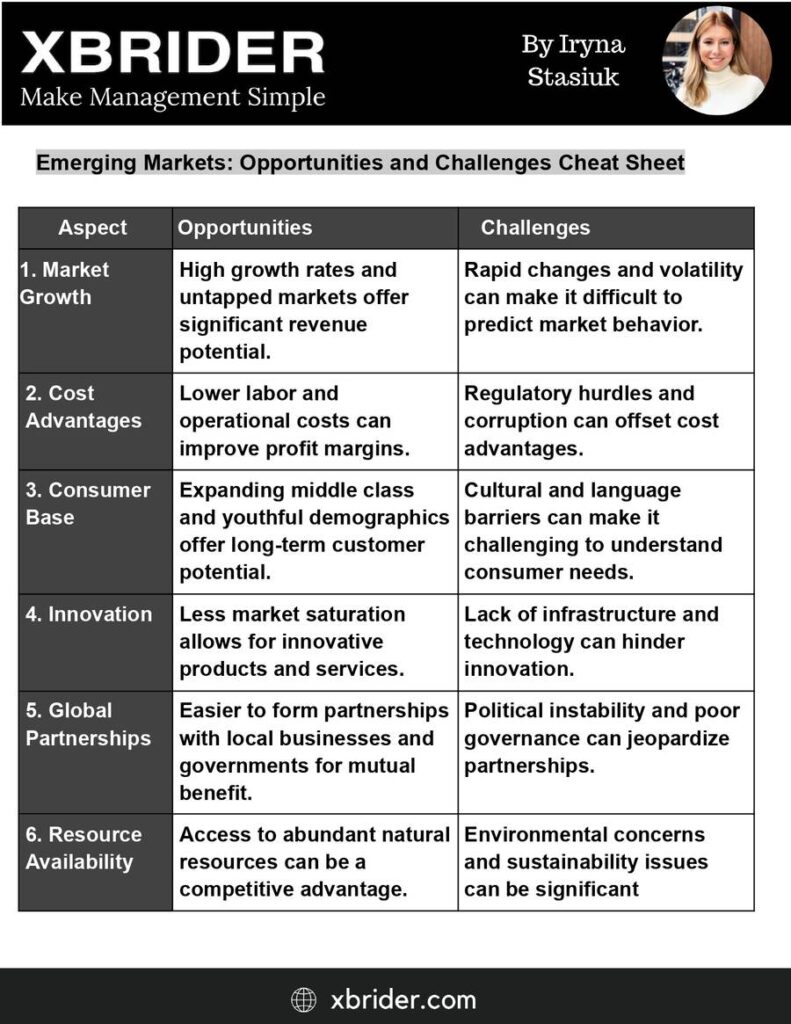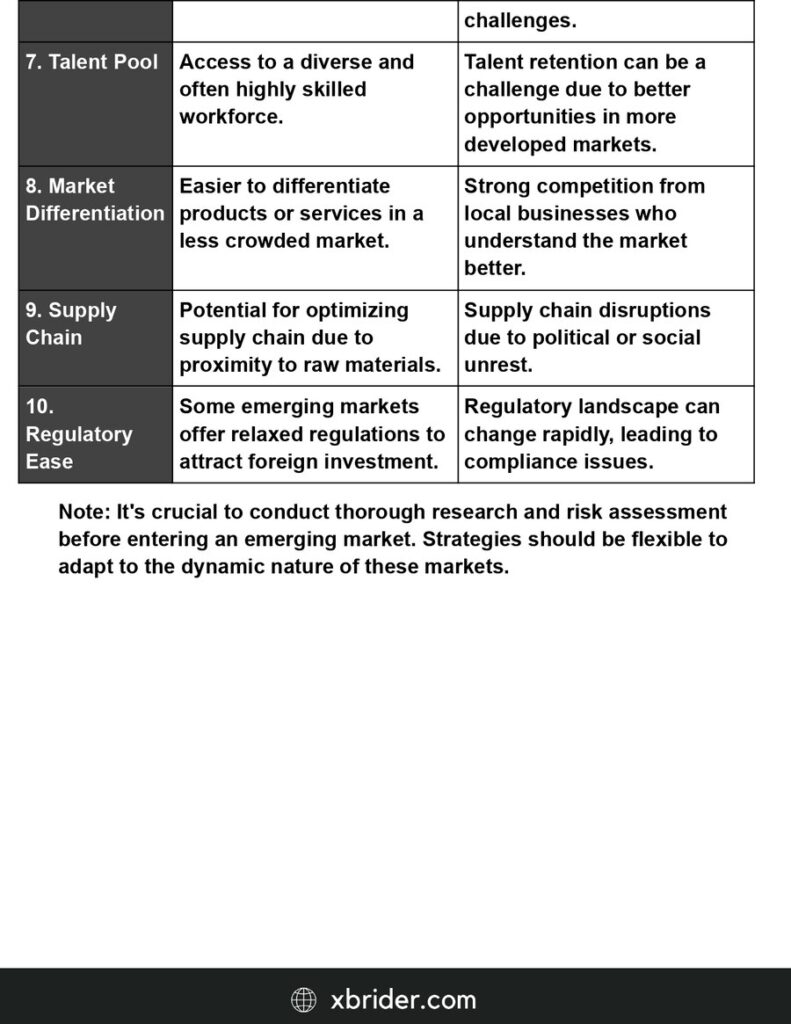In today’s globalized world, emerging markets have become the new frontier for businesses seeking to expand their operations and reach a broader audience. These markets offer a plethora of opportunities, from high growth rates to cost advantages. However, they also come with their own set of challenges, such as regulatory hurdles and cultural barriers. In this comprehensive guide, we will explore the various aspects of emerging markets and how businesses can navigate the complexities to unlock their full potential.
What Are Emerging Markets?
Emerging markets are countries that have some characteristics of a developed market but are not fully developed. They are characterized by their developing industrial base and a higher than average growth rate. Examples include countries like China, India, Brazil, and South Africa.
Opportunities in Emerging Markets
1. High Growth Rates
One of the most enticing aspects of emerging markets is their high growth rates. These markets often have rapidly expanding economies, which can translate into significant revenue potential for businesses.
2. Cost Advantages
Lower labor and operational costs in emerging markets can lead to improved profit margins. Companies can produce goods at a fraction of the cost compared to developed markets.
3. Expanding Consumer Base
Emerging markets often have an expanding middle class and youthful demographics, offering businesses a long-term customer base.
4. Innovation
Less market saturation allows for innovative products and services. Companies can introduce new offerings with less competition.
Challenges in Emerging Markets
1. Regulatory Hurdles
Emerging markets often have complex and sometimes unstable regulatory environments. Businesses must navigate these to operate successfully.
2. Cultural and Language Barriers
Understanding the local culture and language is crucial for market penetration and consumer engagement.
3. Political Instability
Political instability and poor governance can jeopardize business operations and may lead to asset seizure or other adverse conditions.
4. Supply Chain Disruptions
Political or social unrest can lead to supply chain disruptions, affecting the production and distribution of goods.
Navigating the Complexities
1. Conduct Thorough Research
Before entering an emerging market, conduct thorough research to understand the local business environment, consumer behavior, and regulatory landscape.
2. Local Partnerships
Forming local partnerships can help in navigating the complexities of emerging markets. Local partners understand the market better and can provide valuable insights.
3. Risk Assessment
Conduct a risk assessment to understand the potential challenges and prepare contingency plans.
4. Adapt and Evolve
The dynamic nature of emerging markets requires businesses to be flexible and adaptable. Strategies should be reviewed and adjusted regularly based on market feedback and performance metrics.


Emerging markets offer a world of opportunities but come with their own set of challenges. By understanding these aspects and navigating the complexities with informed strategies, businesses can unlock the immense potential these markets offer. As the global landscape continues to evolve, staying updated and adaptable will be key to succeeding in these dynamic markets.

